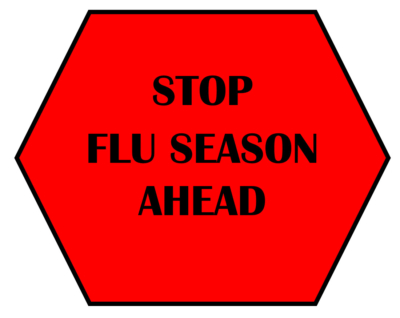 By Kelly Fritz, C-P.N.P. with Community Choice Pediatrics
By Kelly Fritz, C-P.N.P. with Community Choice Pediatrics
The leaves are turning colors, the air is cooler, and football has started. What time is it? It’s time to get your flu shot.
While researchers are racing to create a vaccine for COVID-19, there is already a safe, effective way to protect children and adults from another common and unpredictable infection–INFLUENZA. Many people don’t know that Influenza can cause mild illness as well as severe illness even death. There is concern more this fall than ever before about the health of our children and their families because of the simultaneous circulation of these two potentially deadly viruses in our communities.
CDC Flu Report
If the COVID-19 virus transmission remains high this fall in our communities, health officials caution that our hospitals and emergency services could rapidly exceed capacity. The Centers for Disease Control and Prevention (CDC) issued a final flu report that 166 children and teens under 19 died of complications from influenza over the past flu season. Usually, about 80% of those children who die are not vaccinated. Antiviral medications are useful in the treatment and control of influenza but are not a replacement for the influenza vaccination.
A common misconception many people have is that the flu shot can give you the flu. Influenza vaccine cannot cause flu illness.
 According to the CDC, flu shots are made in two ways: the vaccine is made either with a) flu vaccine viruses that have been killed (inactivated) and are therefore not infectious, or b) this involves inserting the DNA encoding an antigen protein that stimulates an immune response into the cells, expressing the antigen in these cells and then purifying it from them.
According to the CDC, flu shots are made in two ways: the vaccine is made either with a) flu vaccine viruses that have been killed (inactivated) and are therefore not infectious, or b) this involves inserting the DNA encoding an antigen protein that stimulates an immune response into the cells, expressing the antigen in these cells and then purifying it from them.
Nasal spray vaccine is made with attenuated (weakened) live flu viruses, and also cannot cause flu illness. The weakened viruses are cold-adapted which means they are designed to only cause infection at the cooler temperature found within the nose. The viruses cannot infect the lungs or other areas where warmer temperatures exist.
Potential Flu Shot Side Effects
While the flu vaccine cannot cause you to get flu illness, there are some side effects that may be associated with getting a flu shot or a nasal spray flu vaccine. Usually, these possible side effects are mild and short-lasting, especially when compared to symptoms of a bad case of the flu. Some minor side effects from the flu shot that may occur are: soreness, redness, and/or swelling where the shot was given, headache, fever (low grade), muscle aches, nausea, fatigue. In children, some side effects from the nasal spray may include: runny nose, wheezing, headache, vomiting, muscle aches, fever (low grade). Just like with any immunization, there are potential side effects one might experience.
There are several different flu viruses and they are constantly changing.
 The composition of the flu vaccine is reviewed annually and updated as needed to match the predicted most common circulating flu viruses. For this reason. the American Academy of Pediatrics (AAP) recommends yearly that everyone over 6 months old be vaccinated against the seasonal flu viruses. Vaccination is the best thing you can do to protect your child and yourself. Also by maintaining COVID-19 precautions, including social distancing , face masks, and frequent hand washing or hand sanitizing, risks of infections and spread of illness to others will be reduced.
The composition of the flu vaccine is reviewed annually and updated as needed to match the predicted most common circulating flu viruses. For this reason. the American Academy of Pediatrics (AAP) recommends yearly that everyone over 6 months old be vaccinated against the seasonal flu viruses. Vaccination is the best thing you can do to protect your child and yourself. Also by maintaining COVID-19 precautions, including social distancing , face masks, and frequent hand washing or hand sanitizing, risks of infections and spread of illness to others will be reduced.
Therefore, when you see the leaves start to turn those fall colors, notice the weather is cooler, and “Go Chiefs” is heard throughout KC, it’s time to vaccinate for the flu!

